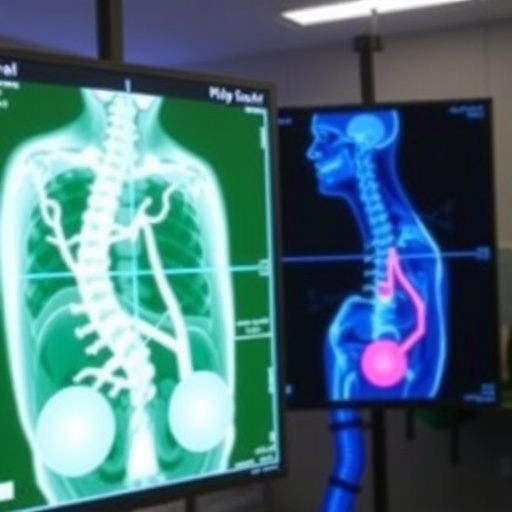
Hong Kong Metropolitan University (HKMU) has recently marked a significant milestone in its quest to transform advanced research into practical, real-world applications. The university has signed its first technology licensing agreement, which holds great promise for revolutionizing the methods of prostate cancer screening. This groundbreaking agreement involves a state-of-the-art, non-invasive electrochemical screening technology that originates from the innovative research conducted by Professor A. L. Roy Vellaisamy. With profound expertise as the Chair Professor of Intelligent Systems within the School of Science and Technology, Prof. Vellaisamy’s work stands at the forefront of scientific advancements concerning prostate cancer diagnostics.
Prostate cancer, a leading health concern, poses critical challenges due to its prevalence and the difficulties associated with early diagnosis. Presently, the gold standard for diagnosing prostate cancer involves invasive biopsy procedures that can be uncomfortable and anxiety-inducing for patients. Traditionally, screenings utilize prostate-specific antigen (PSA) blood tests, yet these are not foolproof. The reliability of PSA tests is hampered by a variety of factors unrelated to cancer, including age, inflammation, and benign prostatic hyperplasia, often leading to false positives and unnecessary biopsies which create an additional mental burden for patients.
Aiming to tackle these pressing issues, Prof. Vellaisamy and his research team have engineered a highly selective system capable of detecting urinary biomarkers pertinent to prostate cancer. Central to this innovative screening technology is a cost-effective electrode suffused with a specially formulated coating consisting of organic monomers and crosslinking agents. This precisely engineered layer forms specific recognition sites designed to capture target biomolecules associated with prostate cancer, creating a comprehensive detection system that can simultaneously analyze multiple cancer biomarkers.
The revolutionary nature of this screening technology lies not only in its design but also in the sophisticated application of advanced machine learning methodologies, which enhance the accuracy of diagnostic results. This informed approach enables the system to function as a powerful diagnostic tool, capable of performance metrics on par with established medical benchmarks, demonstrating an impressive reliability that could dramatically enhance patient outcomes in prostate cancer detection.
The pivotal technology licensing agreement with Pinpoint Medical Ltd serves as an essential step toward transforming laboratory advancements into practical applications that benefit clinical practices. As the platform evolves into a portable, point-of-care diagnostic initiative, it promises to streamline the processes around diagnosing prostate cancer, thereby alleviating burdens on both medical providers and patients alike.
Understanding the urgency surrounding prostate cancer, it is noteworthy that it ranks as the second most diagnosed cancer among men worldwide and is responsible for a substantial number of cancer-related deaths. Consequently, there exists a pressing need for more effective and user-friendly screening methodologies that can facilitate prompt and accurate diagnosis. Prof. Vellaisamy emphasizes that this technology aims to provide an alternative to conventional, invasive testing methods, enabling clinicians to perform analyses on-site and democratizing access to early cancer diagnostics.
The ingenuity of this technology also has implications beyond prostate cancer. Prof. Vellaisamy anticipates future adaptations for bladder cancer detection, further illustrating the versatility and significance of this diagnostic innovation. As research continues to forge ahead, the impact of this technology could extend its utility, offering broader applications in various health sectors.
Highlighting the broader implications of this licensing agreement, Prof. Ricky Kwok Yu-kwong, the Vice President for Research and Institutional Advancement at HKMU, affirms the university’s mission to cultivate impactful research that aligns with societal needs. This initiative represents more than just a commercial venture; it embodies the university’s dedicated commitment to translating scientific discoveries into tangible benefits for the community, enhancing the quality of life through tailored medical solutions.
With the completion of its first technology licensing agreement, HKMU underscores its growing presence within the academic and research landscape. The university’s intellectual property portfolio has expanded significantly, indicating a robust trajectory toward fostering innovative advancements. As it continues to cultivate a culture of applied research, HKMU is poised to catalyze progress across various fields, heralding a new era of knowledge transfer and the practical application of scientific findings.
The prospects surrounding this novel technology are uplifting, providing hope to clinicians and patients alike. The possibility of harnessing a non-invasive, accurate diagnostic system could ultimately redefine the landscape of prostate cancer screening, empowering timely interventions and improving patient outcomes. With a strong foundation laid in research and a clear strategic path forward, HKMU is rendering valuable contributions to the ever-evolving fight against cancer.
As the world stands on the cusp of remarkable breakthroughs in medicine and diagnostics, this technology licensing agreement serves as a beacon of innovation, showcasing how academic research can parallel advances in clinical practice. The collaboration with Pinpoint Medical Ltd consolidates the vision of crafting a more efficient, accessible, and patient-centric approach to diagnosing one of the most prevalent cancers affecting men today.
Ultimately, this significant milestone not only celebrates HKMU’s achievements in technology transfer but also reinforces the enduring importance of academia-industry partnerships in addressing global health challenges. By bridging the gap between research and application, this agreement stands testament to the pivotal role that universities play in shaping the future of healthcare.
As the journey continues, the potential impacts of this electrochemical screening technology will unfold, leading to a new frontier in medical diagnostics that prioritizes patient welfare while paving the way for innovative solutions to critical health issues. The future holds promising avenues for greater diagnostic accuracy and patient-centered care in the landscape of prostate cancer screening.
Subject of Research: Prostate cancer screening technology
Article Title: HKMU Achieves First Technology Licensing Agreement for Non-Invasive Prostate Cancer Screening Innovation
News Publication Date: October 2023
Web References: https://www.hkmu.edu.hk/news/hkmus-first-technology-licence-paving-the-way-for-the-commercialisation-of-non-invasive-prostate-cancer-screening-innovation/
References: ACS Omega, ACS Sensors
Image Credits: Credit: Hong Kong Metropolitan University
Keywords
Prostate cancer, diagnostic technology, HKMU, electrochemical screening, technology licensing, urine test, biomarkers, medical research.
Tags: challenges in early prostate cancer diagnosiscommercialization of medical researchelectrochemical screening technologyHKMU technology licensing agreementinnovative cancer detection methodsintelligent systems in healthcarenon-invasive prostate cancer screeningpatient-centered cancer screening solutionsProfessor A. L. Roy Vellaisamyprostate cancer diagnostics advancementsPSA blood test limitationsreducing biopsy procedures




